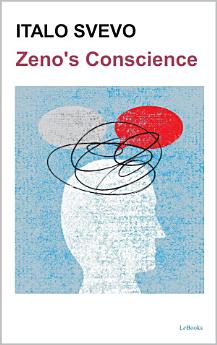Zeno's Conscience - Svevo
About this ebook
Svevo employs a stream-of-consciousness technique to delve into Zeno's psyche, revealing his self-deceptions, rationalizations, and contradictions. Zeno's reflections on his life are marked by irony and humor, and his unreliable narration adds layers of complexity to the story.
One of the central themes of Zeno's Conscience is the exploration of human irrationality and self-delusion. Zeno's repeated failures to quit smoking serve as a metaphor for his broader inability to control his impulses and understand his true motivations. Svevo's portrayal of Zeno's inner life anticipates many of the themes and techniques later associated with psychoanalysis and modernist literature.
The novel also reflects Svevo's interest in the emerging field of psychoanalysis, influenced by his reading of Sigmund Freud's works. Svevo's depiction of Zeno's sessions with his psychoanalyst serves as a vehicle for exploring the complexities of human consciousness and the limitations of self-knowledge.
About the author
Italo Svevo was an Italian writer and businessman, best known for his innovative and introspective literary style, which anticipated many elements of modernist fiction. Born as Ettore Schmitz in Trieste—then part of the Austro-Hungarian Empire—Svevo wrote primarily in Italian and is widely regarded as a key figure in the development of psychological narrative and introspective prose. Despite receiving little recognition in his early years, his later works, especially Zeno's Conscience, secured him a lasting place in European literary history.
Svevo's literary recognition came late. His first two novels, Una vita (1892) and Senilità (1898), went largely unnoticed by the public and critics. However, his fortunes changed when he began taking English lessons from the young Irish writer James Joyce in Trieste. Recognizing Svevo's talent, Joyce encouraged him to continue writing and promoted his work in literary circles.
Today, Svevo's work is recognized as an essential bridge between 19th-century realism and 20th-century modernism. His introspective style, ironic tone, and philosophical depth have influenced authors such as Italo Calvino, Primo Levi, and Samuel Beckett. Zeno's Conscience, in particular, is praised for its complex narrative structure and its candid portrayal of human contradictions.
Although he remained relatively unknown for much of his life, the growing interest in modernist literature after World War I led to a reevaluation of his work. His imperfect and deeply human characters reflect the fragmented identity and moral ambiguity that would come to define much of contemporary literature.






